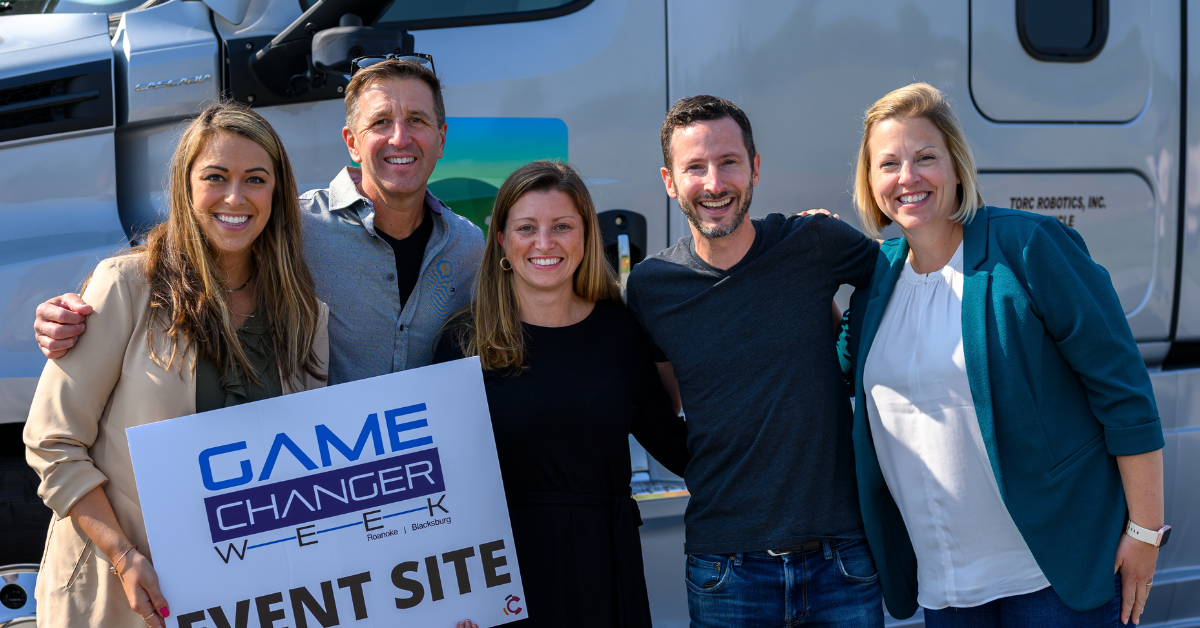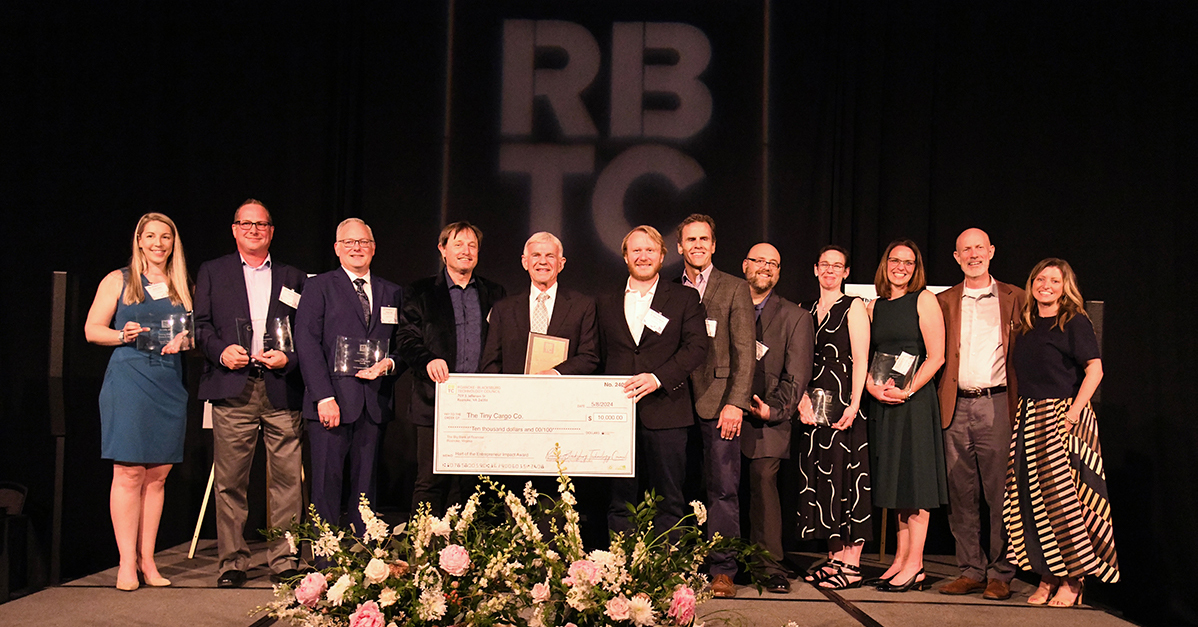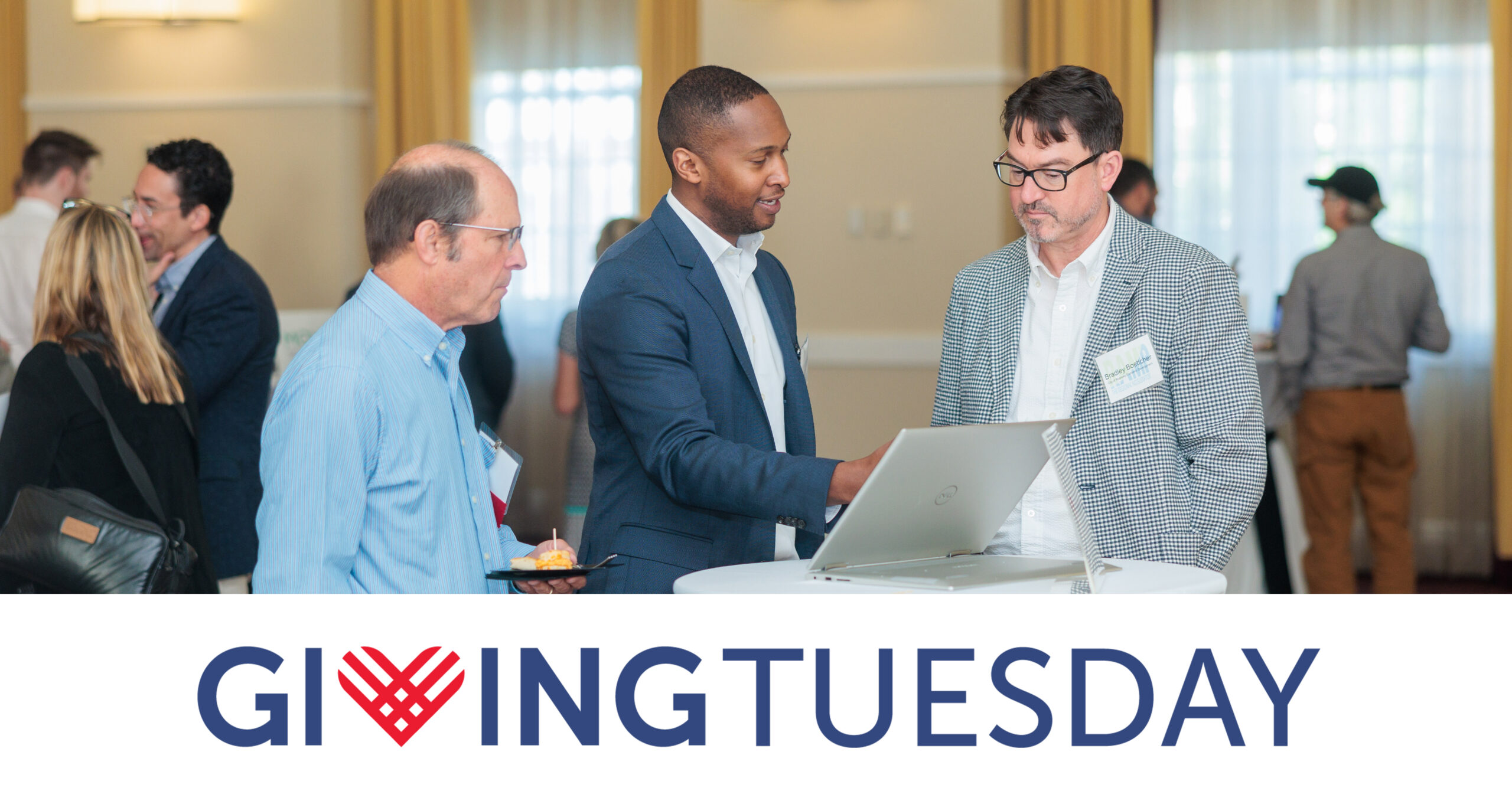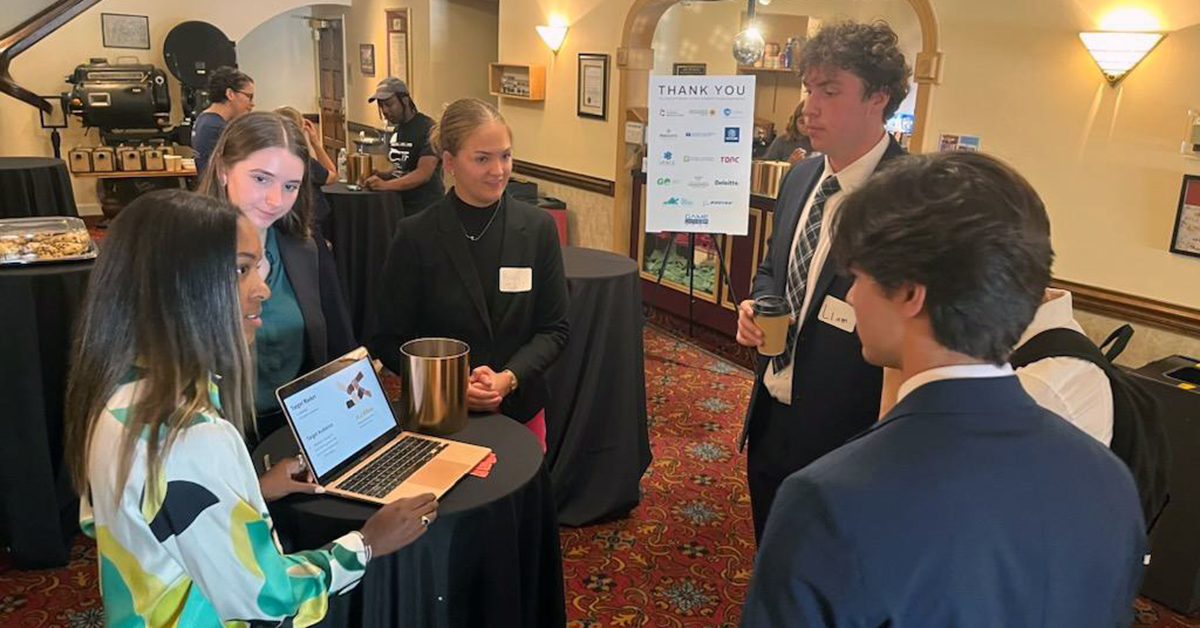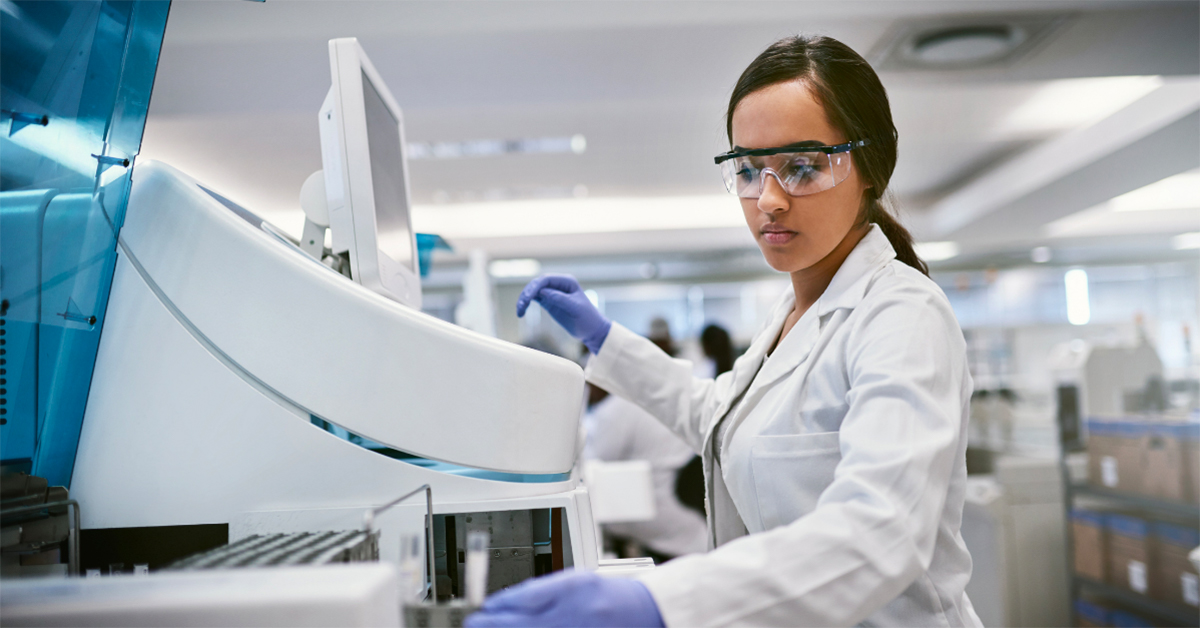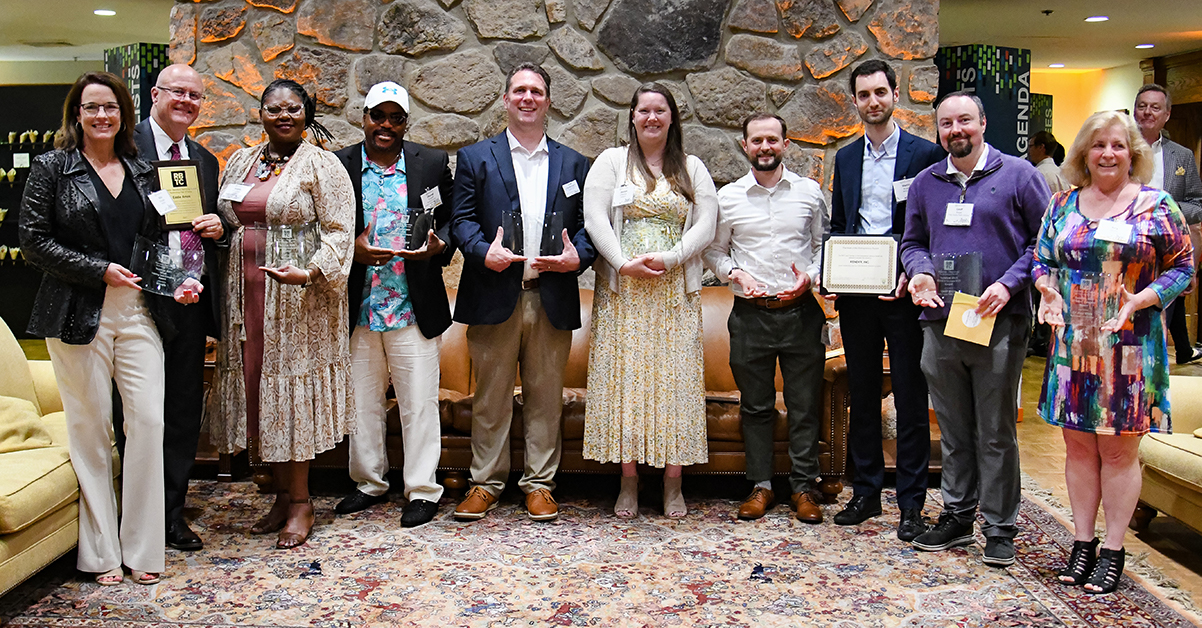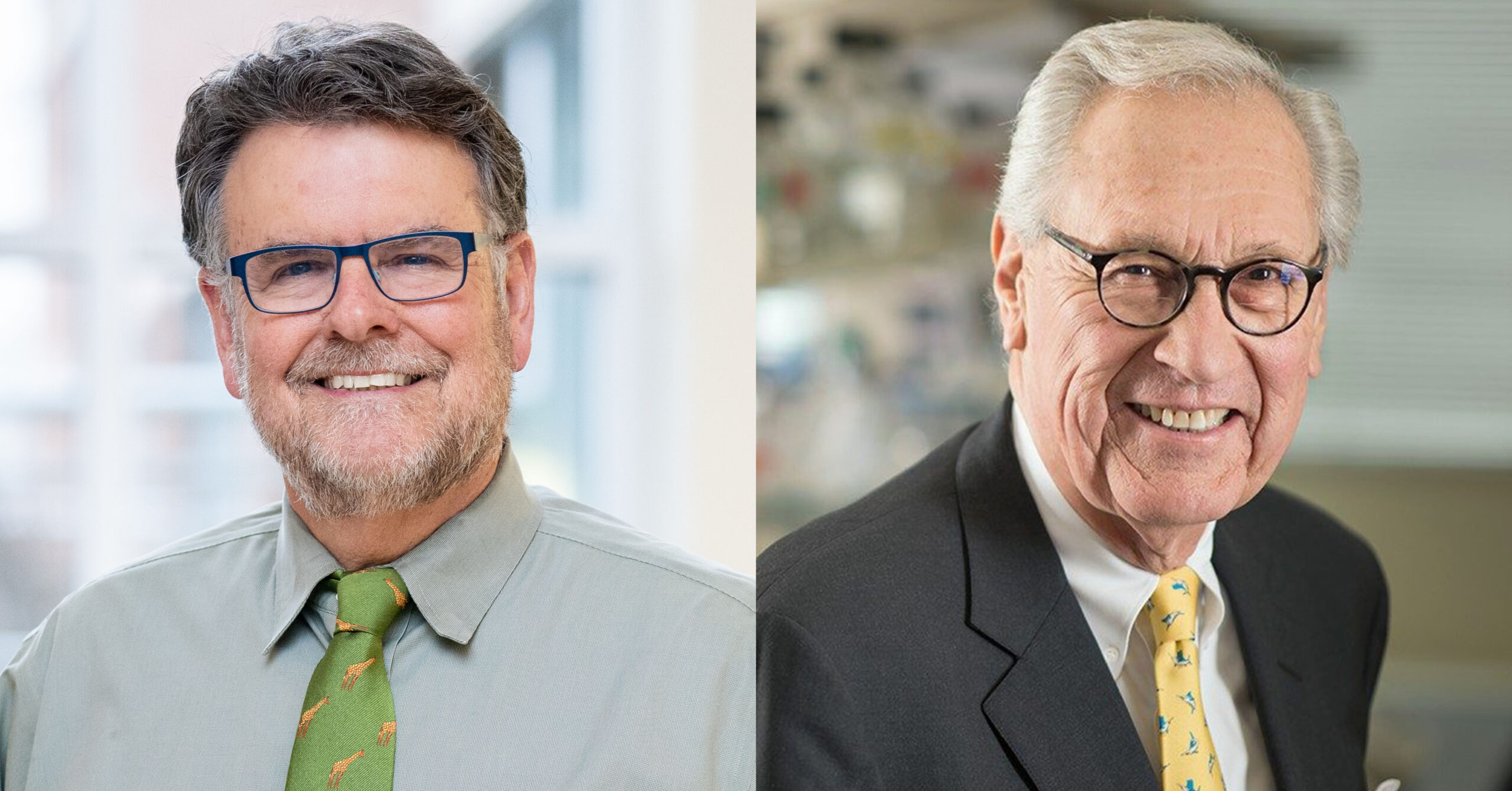Author: Carrie Cousins
Program Coordinator Job Description: RBTC is currently searching for a Program Coordinator to join our passionate team. The Project Coordinator will help build and manage member programming for the region’s […]
The Roanoke-Blacksburg Technology Council’s TechNite 2024 presented by Woods Rogers Vandeventer Black, recognized all the elements that make the Roanoke-Blacksburg innovation ecosystem so dynamic. TechNite 2024 was held Wednesday, May, […]
Roanoke-Blacksburg Technology Council alliance partner Verge is requesting proposals to develop a name and brand for a shared wet-lab space in Roanoke. Project Background Born out of a need to […]
You can empower innovators, entrepreneurs, and startups in the Roanoke-Blacksburg region this Giving Tuesday on Nov. 28. Your gift provides resources and programming for startups and ultimately supports the […]
In the past three years, 62 students at 17 different companies completed internships thanks to $94,000 in funding from GO Virginia. The effort was facilitated by the Roanoke-Blacksburg Technology Council […]
Johnson & Johnson Innovation, in collaboration with Carilion Clinic Innovation, Verge Alliance, City of Roanoke, and Virginia Tech Corporate Research Center, is proud to launch the Advancing Oncology InnoVAtion QuickFire […]
Kim Snyder (KariVis), Eddie Amos, Angela Pope Dickerson (Bullish & Blacks In Technology SWVA), Shierod Russell (Intuitive Surgical), Chad Burchett (Trova Commercial Vehicles), Dr. Jessica Gilbertie (Qentoros), Dean Thomas (CytoRecovery), […]
Verge, part of the RAMP and RBTC collaborative alliance, is poised to grow significantly with multiple grant proposals and funding requests in the pipeline. The key to our success is […]
Heywood Fralin, philanthropist, and Michael Friedlander, PhD, founding Executive Director of Fralin Biomedical Research Institute at VTC (FBRI) and Vice President for Health Sciences and Technology at Virginia Tech, are being […]
ROANOKE, Va. — The City of Roanoke, in partnership with Carilion Clinic, Virginia Tech Corporate Research Center, Verge, Fralin Biomedical Research Institute at VTC, and Virginia Western Community College, today […]
